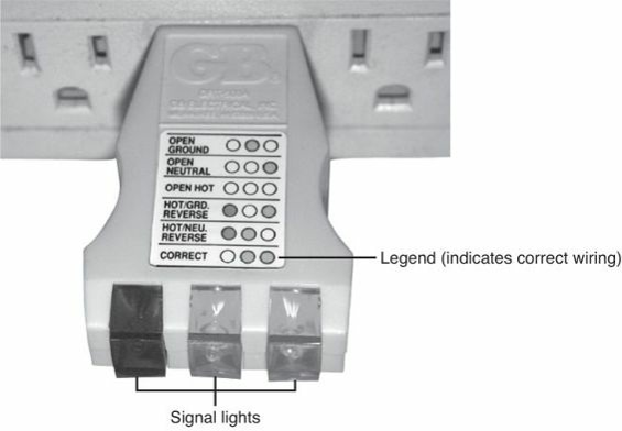Hardware Reference
In-Depth Information
Figure 20.8. A typical outlet/receptacle tester.
Although you might think that badly wired outlets would be a rare problem, I have seen a large
number of installations in which the outlets were wired incorrectly. Most of the time, the problem is
in the ground wire. An improperly wired outlet can result in unstable system operation, such as
random parity checks and lockups. With an improper ground circuit, currents can begin flowing on the
electrical ground circuits in the system. Because the system uses the voltage on the ground circuits as
a comparative signal to determine whether bits are 0 or 1, a floating ground can cause data errors in
the system.
Memory Module Testers
For high-volume service shops or large corporate environments servicing many systems, a dedicated
memory tester can offer efficiency, performance, and accuracy far beyond running memory test
software on a PC. These testers are table-top devices designed to evaluate all types of memory
modules and even individual chips. The main drawback is that these testers can be somewhat
expensive, costing thousands of dollars, but the cost can be justified for those who need to test a lot of
memory quickly and accurately.
Without one of these testers, you are reduced to testing memory by running diagnostic programs on the
PC and testing the memory as it is installed. This can be problematic because memory diagnostic
programs can do only two things to the memory: write and read. A dedicated memory tester can do
many things a memory diagnostic running in a PC can't do, such as
• Identify the type of memory.
• Identify the memory speed.
• Identify whether the memory has parity or is using bogus parity emulation.
• Vary the refresh timing and access speed timing.
• Locate single bit failures.

